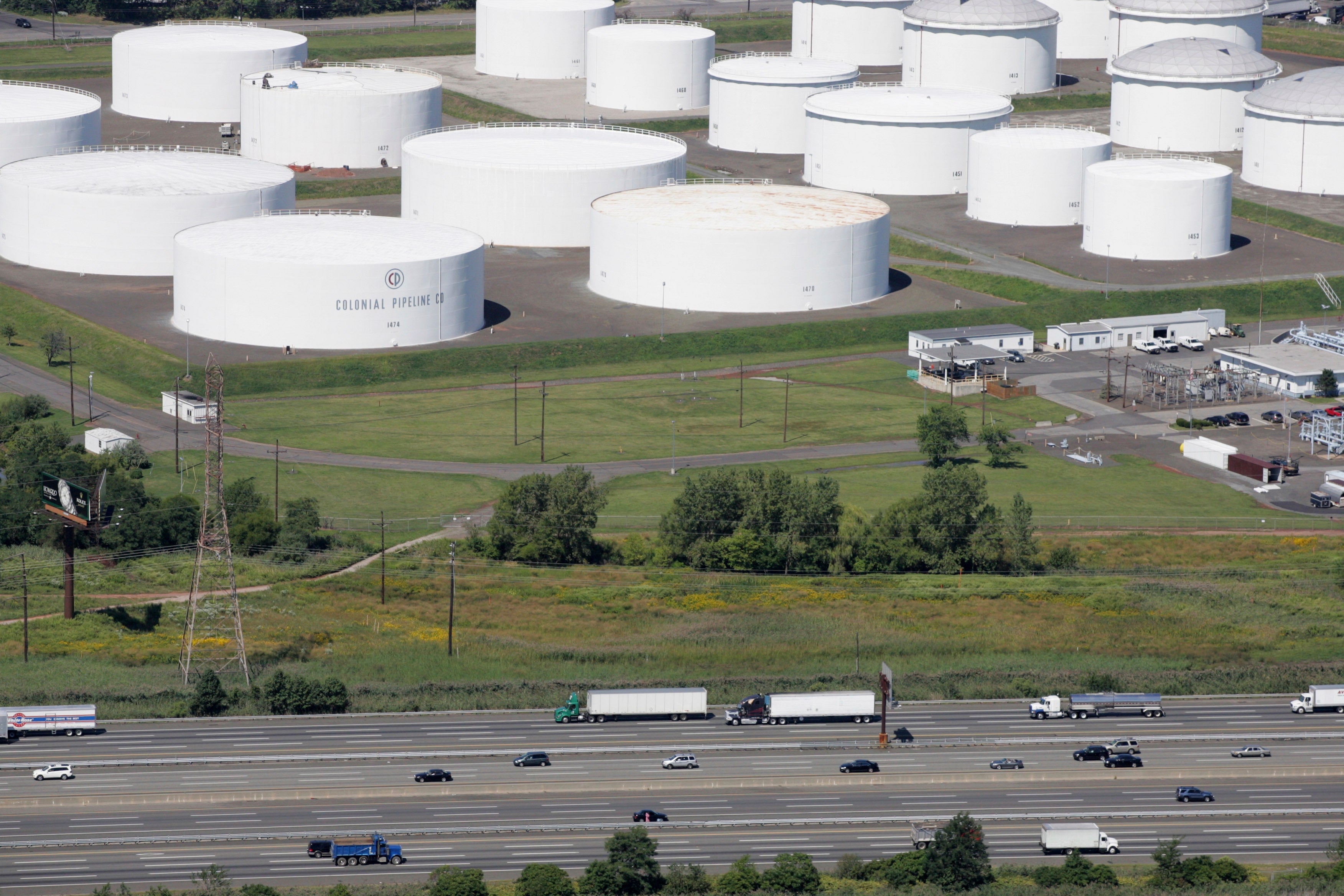US pipeline company halts some operations after cyberattack
A company that operates a major U.S. energy pipeline says it was forced to temporarily halt all pipeline operations following a cybersecurity attack

Your support helps us to tell the story
From reproductive rights to climate change to Big Tech, The Independent is on the ground when the story is developing. Whether it's investigating the financials of Elon Musk's pro-Trump PAC or producing our latest documentary, 'The A Word', which shines a light on the American women fighting for reproductive rights, we know how important it is to parse out the facts from the messaging.
At such a critical moment in US history, we need reporters on the ground. Your donation allows us to keep sending journalists to speak to both sides of the story.
The Independent is trusted by Americans across the entire political spectrum. And unlike many other quality news outlets, we choose not to lock Americans out of our reporting and analysis with paywalls. We believe quality journalism should be available to everyone, paid for by those who can afford it.
Your support makes all the difference.A company that operates a major U.S. energy pipeline says it was forced to temporarily halt all pipeline operations following a cybersecurity attack.
In a statement, Colonial Pipeline said the attack took place Friday and also affected some of its information technology systems. The company describes itself as the largest refined products pipeline in the United States. It says it’s responsible for transporting more than 100 million gallons of fuel daily, through a pipeline system spanning more than 5,500 miles between Texas and New Jersey
The Alpharetta, Georgia-based company said it hired an outside cybersecurity firm to investigate the nature and scope of the attack and has also contacted law enforcement and federal agencies.
“Colonial Pipeline is taking steps to understand and resolve this issue,” the company said in a late Friday statement. “At this time, our primary focus is the safe and efficient restoration of our service and our efforts to return to normal operation. This process is already underway, and we are working diligently to address this matter and to minimize disruption to our customers and those who rely on Colonial Pipeline.”
The precise nature of the incident was unclear, including who launched the attack and what the motives were.
The FBI and the White House’s National Security Council did not immediately return messages seeking comment. The federal Cybersecurity Infrastructure and Security Agency referred questions about the incident to the company.
A hacker’s botched attempt to poison the water supply of a small Florida city raised alarms about how vulnerable the nation’s critical infrastructure may be to attacks by more sophisticated intruders.
Anne Neuberger, the Biden administration’s deputy national security adviser for cybersecurity and emerging technology, said in an interview with The Associated Press in April that the government was undertaking a new effort to help electric utilities, water districts and other critical industries protect against potentially damaging cyberattacks. She said the goal was to ensure that control systems serving 50,000 or more Americans have the core technology to detect and block malicious cyber activity.
Since then, the White House has announced a 100-day initiative aimed at protecting the country’s electricity system from cyberattacks by encouraging owners and operators of power plants and electric utilities to improve their capabilities for identifying cyber threats to their networks. It includes concrete milestones for them to put technologies into use so they can spot and respond to intrusions in real time. The Justice Department has also announced a new task force dedicated to countering ransomware attacks in which data is seized by hackers who demand payment from victims in order to release it.
___
Suderman reported from Richmond, Virginia.